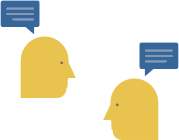This site is designed for the best viewing experience on a tablet or larger device. It will not display properly on a phone. please try turning your tablet sideways for landscape mode to access the toolkit, otherwise you can download and view a PDF of the content via the link below.
Copyright © Monash University (2017). All rights reserved. Except as provided in the Copyright Act 1968, this work may not be reproduced in any form without the written permission of English Connect web administrator. Material created by Dr Anna Podorova, Ms Julia Ghazarian and Dr Amber McLeod.
What are verbs and verb tenses?
A verb is the part of speech that signals an action or state of existence. The ‘tense’ of a verb signals the time the action took place and how the action was taken. Verbs have important roles in every sentence. The incorrect choice of a verb tense may interfere with the intended message and make it unclear.
|
|
|
Using tenses correctly
|
There are more than 20 English tenses to choose from when we use verbs in our speech and writing. The next two slides provide a summary grid outlining the main rules of tense use in simple sentences. In order to understand the grid, please study the legend below:
|
|
| Active tense use | Past | Present | Future | |||||
|---|---|---|---|---|---|---|---|---|
|
Simple (indefinite) V |
did Ved |
do does V or Vs |
will | ||||
| Indicators: yesterday last (last week, last month, last year) ago (3 days ago, 2 weeks ago, etc.) exact date (in 1990, etc.) when (when I was a child, etc.) Example: Students submitted their assignments last Friday. | Indicators: Never Rarely / seldom Sometimes Often Usually Always Example: Students usually submit their assignments on-line. |
Indicators:
in ... months/years (distant future) promises spontaneous decisions Example: Students will submit their assignments on-line in 2025. |
||||||
|
Continuous (Progressive) be + Ving |
was were |
 |
+ Ving | am is are |
 |
+ Ving | will be + Ving |
|
Indicators:
at ... o’clock yesterday at this time last week while from ... till ... last night, etc. Example: Students were submitting their assignments when the system crashed. |
Indicators:
now = at the moment this week, month, etc. plans (I’m meeting my friends next Monday.) Example: Students are submitting their assignments this Friday. |
Indicators:
at this time tomorrow/next Monday/etc. from ... till ... tomorrow morning Example: Students will be submitting their assignments at this time next Monday. |
||||||
|
Perfect have + Ved or V3 |
had + Ved or V3 | have has |
 |
+ Ved or V3 | will have + Ved or V3 | ||
| Indicators by + a particular moment in the past (by the time he came home, by 3 pm, etc.) before/after for Example: Students had submitted their assignments by the deadline. |
Indicators:
already, yet, since, ever, never, for, so far, by now, recently, lately, just, before/after Example: Students haven’t submitted their assignments yet. |
Indicators: by + a particular moment in the future (by the end of this month, by 5 pm next Monday, etc.) Example: Students will have submitted their assignments by the end of next month. | ||||||
|
Perfect Continuous have + been + Ving |
had been + Ving | have has |
 |
been Ving | |||
| Indicators: how long ... ? for Example: Students had been submitting their assignments on-line before the system crashed. | Indicators: how long ... ? for Example: Students have been submitting their assignments on-line for more than a year. | |||||||
Legend:
| V (verb) | go smile start stop | Ving | going smiling starting stopping | |
| V2 | went | Ved | smiled started stopped | |
| V3 | gone | Vs | goes smiles starts stops |
© 2015, Dr Anna Podorova, GET HELP materials, Faculty of Education, Monash University
| Passive tense use | Past | Present | Future | |||||
|---|---|---|---|---|---|---|---|---|
The same use as in active voice.
|
Simple (indefinite) be + V3 |
was were |
 |
+ Ved or V3 | am is are |
 |
+ Ved or V3 | will be + Ved or V3 |
| Indicators: yesterday last (last week, last month, last year) ago (3 days ago, 2 weeks ago, etc.) exact date (in 1990, etc.) when (when I was a child, etc.) Example: Assignments were submitted in person five years ago. | Indicators: Never Rarely / seldom Sometimes Often Usually Always Example: Assignments are usually submitted on-line. |
Indicators:
in ... months/years (distant future) promises spontaneous decisions Example: All assignments will be submitted on-line in 2025. |
||||||
|
Continuous (Progressive) be + being + V3 |
was were |
 |
+ being + Ved or V3 | am is are |
 |
+ being + Ved or V3 | will be + being + Ved or V3 |
|
Indicators:
at ... o’clock yesterday at this time last week while from ... till ... last night, etc. Example: The assignments were being submitted at this time last Monday. |
Indicators:
now = at the moment this week, month, etc. plans (I’m meeting my friends next Monday.) Example: All assignments for this unit are being submitted this week. |
Indicators:
at this time tomorrow/next Monday/etc. from ... till ... tomorrow morning Example: Assignments will be being submitted at this time next Monday. |
||||||
|
Perfect have + been + V3 |
had + been + Ved or V3 | have has |
 |
been + Ved or V3 | will have been + Ved or V3 | ||
| Indicators: by + a particular moment in the past (by the time he came home, by 3 pm, etc.) Example: All assignments had been submitted by the deadline. | Indicators already, yet, since, ever, never, for, so far, by now, recently, lately, just, before/after Example: Assignments have been already submitted on-line. | Indicators: by + a particular moment in the future (by the end of this month, by 5 pm next Monday, etc.) Example: Assignments will have been submitted by the end of next week. | ||||||
Legend:
| V (verb) | go smile start stop | Ving | going smiling starting stopping | |
| V2 | went | Ved | smiled started stopped | |
| V3 | gone | Vs | goes smiles starts stops |
© 2015, Dr Anna Podorova, GET HELP materials, Faculty of Education, Monash University
When we use verbs, we have to make two very important decisions very quickly:
|
For instance, when describing our past learning experiences, we would mostly use one or more past tenses (to describe facts and processes from some time ago) and perhaps the Present Perfect tense (to describe events that are still relevant or have results in the present time). For past and perfect tenses, we need to know regular and irregular patterns of using verbs. Example: I have always been a keen reader. When I was very young, I loved listening to stories. When I grew older, I went to the library every week to find books to read. I was very disappointed if the books on my list had been borrowed by someone else. |
|
Tenses in reported speech
|
We often have to report someone else’s words in our everyday life or in academic writing. The choice of a tense in the reported part depends on the tense of the reporting verb. Please note the change of the word order, where required*. If the reporting verb is in the present tense, no changes are made to the tense of the reported part. For example:
* For more information about the word order changes in reported questions, please go to the “Word Order” module. |
|
Tenses in reported speech
The tense grid becomes very useful when we have to report someone else’s words and the reporting verb is in the past tense. Changes need to be made to the tense and time indicators in the reported part. The present tenses ‘move’ to the past and future tenses start using ‘would’ instead of ‘will’. For example:
| Direct speech | Reported speech |
|---|---|
| Our lecturer asked, “Why are you so happy today?” | Our lecturer asked why we were so happy that day. |
| “My classmates didn’t help me!” complained my friend. | My friend complained that his classmates had not helped him. |
| “Will you come to our party?” they asked me. | I was asked whether I would go to their party. |
| “I will submit my assignment tonight,” promised he. | He promised he would submit his assignment that night. |
If the reporting verb is in the past tense, the following changes are required to the present tense and time indicators in the reported clause:
| Tenses | Past | Present | |
|---|---|---|---|
| Simple | He said he submitted his assignments on time. |  |
“I submit my assignments on time.” |
| Continuous | He said he was submitting his assignment at that time. |  |
“I am submitting my assignment now.” |
| Perfect | He said he had submitted all assignments. |  |
“I have submitted all assignments.” |
| Perfect continuous | He said he had been working on his assignment. |  |
“I have been working on my assignment.” |
If the reporting verb is in the past tense, the following changes are required to the past tense and time indicators in the reported clause:
| Tenses | Past | |||
|---|---|---|---|---|
| Simple |  |
“I submitted my assignments.” | ||
| Continuous |  |
“I was working on my assignment.” | ||
| Perfect | He said he had submitted his assignments. | |||
| Perfect continuous | He said he had been working on his assignment. | |||
Please note that time indicators also change if you report a past situation. Here are some examples:
| Direct speech | After a reporting verb in the past tense |
|---|---|
| now | then |
| tonight | that night |
| yesterday | the day before |
As advanced users of English, we often need to discuss events that have not yet taken place or may happen in the future. Modal verbs are usually used when we want to express the following:
| might | may, could | can | should | must | ||
 |
||||||
| 0% | 30% | 40% | 50% | 80% | 95% | 100% |
As all other verbs, modals have tenses but the tenses are formed differently. Look at some examples below:
| Some uses and meanings of ‘could’ | Use of ‘could’ in the present or future | Use of ‘could’ in the past |
|---|---|---|
| past ability | I could speak 3 languages when I was a child. | |
| about 40% certainty | Mary isn’t here today. She could be sick. | Mary wasn’t here last week. She could have been sick. |
| polite request | Could you please explain the assignment requirements to me? | |
| suggestion | You could ask your tutor about the assignment. | You could have asked your tutor about the assignment. |
For more on tenses and modal verbs, please study this resource: Azar, B. S. & Hagen, S.A. (2009). Understanding and using English grammar (4th ed.). USA: Pearson Longman.
Conditionals
There are several tenses and verb forms which we use to talk about conditions and results of these conditions. Sometimes we use mixed forms but mostly the three patterns below are followed:
| 1st conditional |
|
| 2nd conditional |
|
| 3rd conditional |
|
Copyright © Monash University (2017).
At home, my younger cousin become my learning supporter. In the beginning, I always observe and imitate how they pronounce English words. When I became familiar with these basic skills, I tried to express my feelings in English during the conversations with my cousins, but sometimes I still had to use my mother tongue to express some sophisticated ideas. Another difference was the word order in a sentence. Once I taken notice of that, making sentences becomes much easier for me.
At home, my younger cousin become my learning supporter. In the beginning, I always observe and imitate how they pronounce English words. When I became familiar with these basic skills, I tried to express my feelings in English during the conversations with my cousins, but sometimes I still had to use my mother tongue to express some sophisticated ideas. Another difference was the word order in a sentence. Once I taken notice of that, making sentences becomes much easier for me.
At home, my younger cousin became my learning supporter. In the beginning, I always observed and imitated how they pronounced English words. When I became familiar with these basic skills, I tried to express my feelings in English during the conversations with my cousins, but sometimes I still had to use my mother tongue to express some sophisticated ideas. Another difference was the word order in a sentence. Once I had taken notice of that, making sentences became much easier for me.
Copyright © Monash University (2017).
Apply what you have learnt in this module and click on the correct option(s) below
|
Amber thought she submitted her assignment.
In 2003 McLeod has been suggested the students needed help with digital literacy.
They would have been upset if the teacher had not reassured them.
Try again
|
|
The past perfect tense (had submitted) should be used when the verb in the main clause is in the past tense. After the subject (McLeod), active past simple tense should be used (McLeod (2003) suggested...). Correct |
Copyright © Monash University (2017).
 Ask yourself “Past? Present? Or Future?” and then ‘Fact? Process? Or Result?” when choosing verb tenses to use in speech and writing.
Ask yourself “Past? Present? Or Future?” and then ‘Fact? Process? Or Result?” when choosing verb tenses to use in speech and writing.
 Double-check that you used correct verb forms for your chosen tense.
Double-check that you used correct verb forms for your chosen tense.
 Study tenses and verb forms in advanced grammar books. Pay attention to tenses and verb forms around you: on TV, in university and other readings, and in conversations with proficient users of English.
Study tenses and verb forms in advanced grammar books. Pay attention to tenses and verb forms around you: on TV, in university and other readings, and in conversations with proficient users of English.
Copyright © Monash University (2017).
Useful links on tenses
Verb tense tutorial, Englishpage.com English for Uni: Tenses, The University of Adelaide English for Uni: Conditionals, The University of Adelaide Language and Learning Online: Grammar, Monash University Online Writing Lab: Verb tenses: Purdue university
Face-to-face support
Who can help with English at Monash? LearnHQ consultations - support from a SAS learning advisor English Connect - improving conversational English and presentation skills

Resources – grammar books
Azar, B. S. & Hagen, S.A. (2009). Understanding and using English grammar (4th ed.). USA: Pearson Longman. Borjars, K. & Burridge, K. Introducing English grammar (2nd ed.). London: Hodder Education. Foley, M. & Hall, D. (2012). MyGrammarLab (Advanced). England: Pearson. Hewings, M. (2012). Advanced grammar in use: a reference and practice book for advanced students of English (2nd ed.). Cambridge: Cambridge University Press. Murphy, R. (2011). English Grammar in Use (Intermediate) (3 ed.). Cambridge: Cambridge University Press.